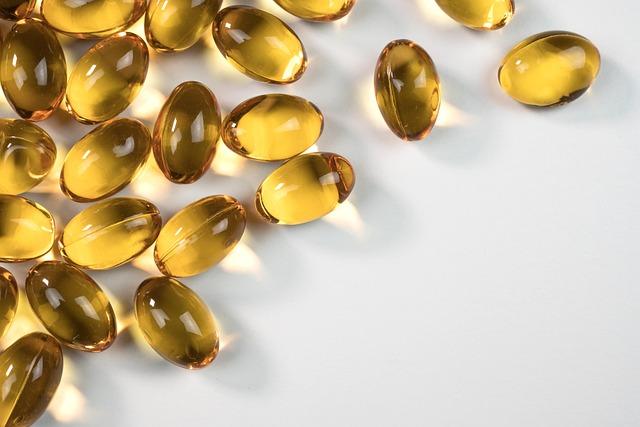as the natural ebb and flow of a woman’s hormonal landscape shifts with age, many find themselves navigating the often-uncharted territories of perimenopause. This transitional phase can bring a constellation of symptoms, from mood swings and hot flashes to fatigue and sleep disturbances, leaving many seeking refuge in the realm of supplements. But with a myriad of options available, how does one discern which remedies are grounded in scientific research? In this article, we delve into the world of perimenopause supplements, exploring the evidence behind their effectiveness and easing the journey through this pivotal time of life. Join us as we uncover the potential of these proactive solutions to provide symptom relief, allowing women to embrace this change with confidence and grace.
Understanding Perimenopause: The Science Behind Common Symptoms
Perimenopause, the transitional phase leading to menopause, is characterized by a variety of symptoms as hormonal fluctuations disrupt the body’s natural rhythm.Understanding the science behind these changes is crucial for recognizing what’s happening physiologically. During this time, estrogen and progesterone levels can become erratic, leading to issues such as:
- Hot flashes – Sudden feelings of intense heat due to changes in blood flow.
- Sleep disturbances - Irregular hormone levels can impact sleep quality and lead to insomnia.
- Mood swings – Fluctuating hormones frequently enough lead to emotional instability and increased irritability.
- Irregular periods – The menstrual cycle can vary significantly during this phase.
Understanding these symptoms through a scientific lens helps in choosing effective supplements for relief. Research suggests that certain natural supplements can aid in alleviating discomfort by aiding hormonal balance. as an example, black cohosh has been linked to reduced hot flashes, while omega-3 fatty acids can support mood stabilization and overall psychological well-being. Below is a table summarizing some commonly studied supplements and their benefits:
| Supplement | Potential Benefits |
|---|---|
| Black Cohosh | May reduce hot flashes and improve mood. |
| Omega-3 fatty Acids | Supports heart health and mood stability. |
| Vitamin E | May alleviate hot flashes and improve skin elasticity. |
| Magnesium | Can definitely help reduce anxiety and improve sleep quality. |

Natural Remedies for Hot Flashes: Effective Supplements to Consider
Hot flashes, a common symptom during perimenopause, can lead to significant discomfort, affecting daily life and overall well-being. Fortunately, various natural supplements offer potential relief. Among the most effective are black cohosh, which has been traditionally used for menopausal symptoms, and evening primrose oil, known for its potential hormone-balancing properties. Other options include flaxseed,rich in omega-3 fatty acids,and red clover,which contains phytoestrogens that may mimic estrogen in the body. these natural remedies not only help alleviate hot flashes but can also support general hormonal balance.
Along with these, you might want to explore the benefits of vitamin E and magnesium. Research suggests that vitamin E can reduce the frequency and intensity of hot flashes while magnesium aids in alleviating stress and promoting relaxation. You can also consider a balanced diet rich in whole grains, fruits, vegetables, and lean proteins, which can collectively enhance hormonal health. The following table summarizes these supplements, their benefits, and recommended dosages:
| Supplement | Benefits | Recommended Dosage |
|---|---|---|
| Black Cohosh | Reduces hot flashes | 20-40 mg daily |
| Evening Primrose Oil | Balances hormones | 500 mg daily |
| Flaxseed | Rich in omega-3s | 1-2 tbsp ground |
| Red Clover | Contains phytoestrogens | 40-80 mg daily |
| Vitamin E | May reduce hot flashes | 400 IU daily |
| Magnesium | Aids stress relief | 310-320 mg daily |

Mood Stability and Cognitive support: How Supplements Can Help
As hormonal fluctuations during perimenopause can lead to emotional ups and downs, many women seek ways to enhance their mood stability.Scientific research has identified several supplements that show promise in supporting mental wellness. Key ingredients such as Omega-3 fatty acids, St. John’s Wort, and L-Theanine are known for their potential benefits in promoting a balanced mood. By incorporating these supplements into their daily routine, women can provide their bodies with essential nutrients that may help mitigate the emotional turbulence associated with this transitional phase of life.
In addition to mood support, cognitive function can also be affected during perimenopause.B vitamins,particularly Vitamin B12 and Folate,have been linked to improved brain health and cognitive function. Supplements like Ginkgo Biloba may enhance blood flow to the brain, potentially sharpening memory and focus. Here’s a look at some promising supplements for mood and cognitive support:
| Supplement | Possible Benefits |
|---|---|
| Omega-3 Fatty Acids | Reduces mood swings, supports brain health |
| st. John’s Wort | May alleviate mild depression |
| L-Theanine | Promotes relaxation without drowsiness |
| Vitamin B12 | enhances cognitive function,improves energy |
| Ginkgo Biloba | May improve memory and concentration |

Nutritional Considerations: Building a Balanced Diet for Symptom Relief
as women navigate the transition into perimenopause, the importance of a well-rounded diet cannot be overstated. A balanced diet provides essential nutrients that can help alleviate symptoms such as hot flashes, mood swings, and sleep disturbances. Key components of this diet should include a variety of fruits, vegetables, whole grains, and healthy fats. Specifically, consider incorporating:
- Fruits and Vegetables: Aim for a colorful plate, rich in antioxidants and vitamins.
- Whole Grains: Foods like quinoa, brown rice, and oats support stable energy levels.
- Healthy Fats: Sources like avocados, nuts, and olive oil aid in hormone regulation.
Moreover, specific nutrients can play a pivotal role in symptom management.As an example, calcium and vitamin D are crucial for bone health, particularly as estrogen levels decline. Magnesium can assist in reducing anxiety and improving sleep quality. Below is a table highlighting some of these vital nutrients along with their dietary sources:
| Nutrient | Food Sources |
|---|---|
| Calcium | Dairy products, leafy greens, fortified foods |
| Vitamin D | Fatty fish, egg yolks, fortified dairy |
| Magnesium | Nuts, seeds, whole grains |
The Way Forward
As we draw the curtain on our exploration of perimenopause supplements, it’s essential to remember that navigating this transitional phase is a deeply personal journey. While the science behind these supplements offers intriguing insights and potential pathways for relief,individual experiences will vary. Engaging with a healthcare professional remains paramount in determining the most suitable options tailored to one’s unique needs.
In a world filled with diverse wellness strategies, knowledge is power. Understanding the role supplements can play in alleviating the challenges of perimenopause empowers individuals to make informed decisions, fostering a sense of control in this natural yet often unpredictable chapter of life. As you embark on this path, may you find the balance and support that resonate with you, guiding you towards a more harmonious transition. Let’s embrace this phase with curiosity and confidence, knowing that relief backed by science is just the beginning of a new chapter.




